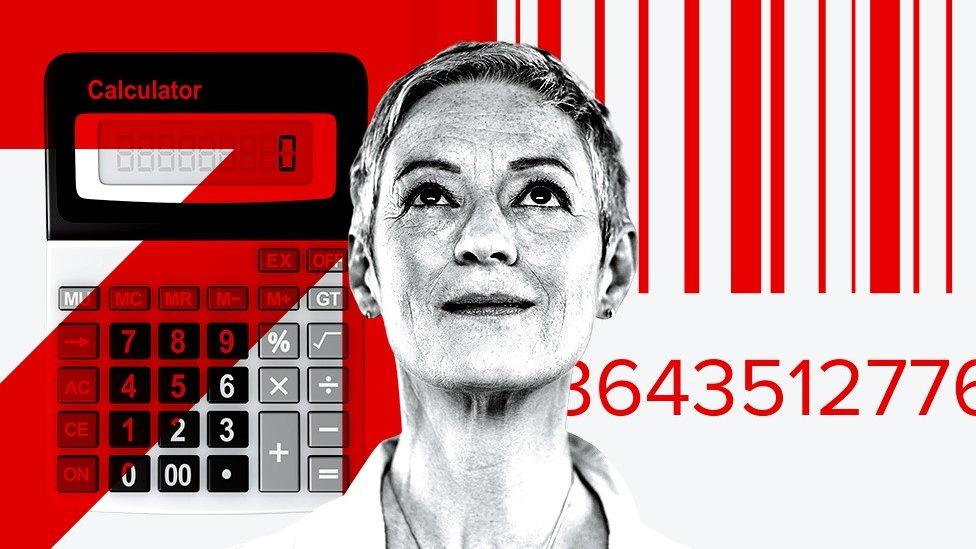Cost of living: Mum starts rationing and trader fears for business
- Published
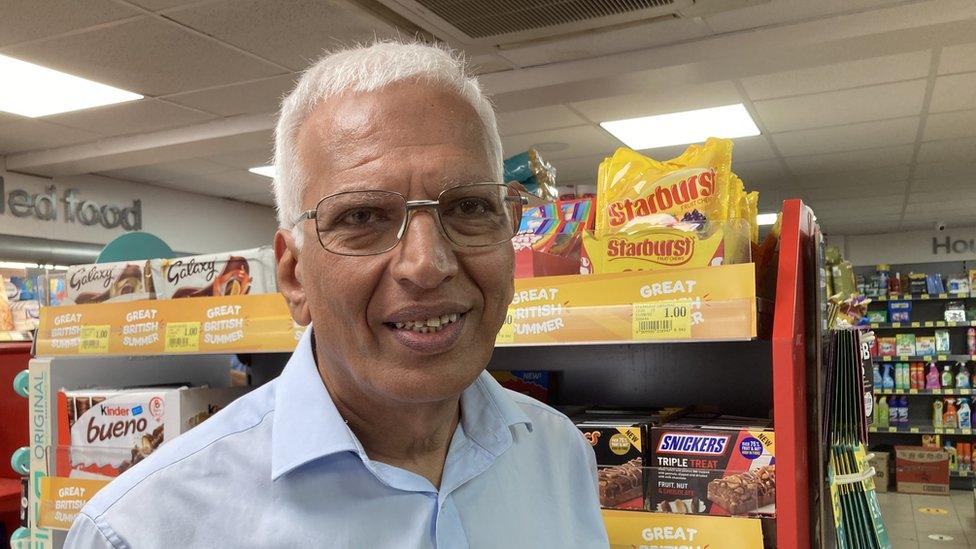
Ramesh Samani is having to pass on rising costs to his customers
A mother-of-four has begun "rationing" to cope with the cost of living crisis while a shopkeeper has said things could "get even harder".
Lexi told BBC Radio Wales Breakfast her children were "constantly hungry".
And shopkeeper Ramesh Samani said small shops were struggling to survive, with goods costing about 20% more, and being passed on to customers.
It comes as figures showed UK inflation hit 10.1% in the 12 months to July, the highest rate for 40 years.
Lexi, from north Wales, said her children were getting three meals a day but "they're not nutritious, they're not healthy but it's filling their bellies for the time being".
People from around Wales react to the latest increase in inflation
She said her weekly shopping bill had increased from £80 to £110 in the past year, so she has limited using her heating oil for hot water to when it was "absolutely necessary". She has also not used her car since the start of the school holidays.
She explained how she had to tell her children they could not afford to go to friends' birthday parties or do other things with them with "no spare money".
'Vicious cycle'
"Unless you sit down and explain it, they think you are a mean mum," she said.
"It's a vicious cycle and it's getting worse by the week."
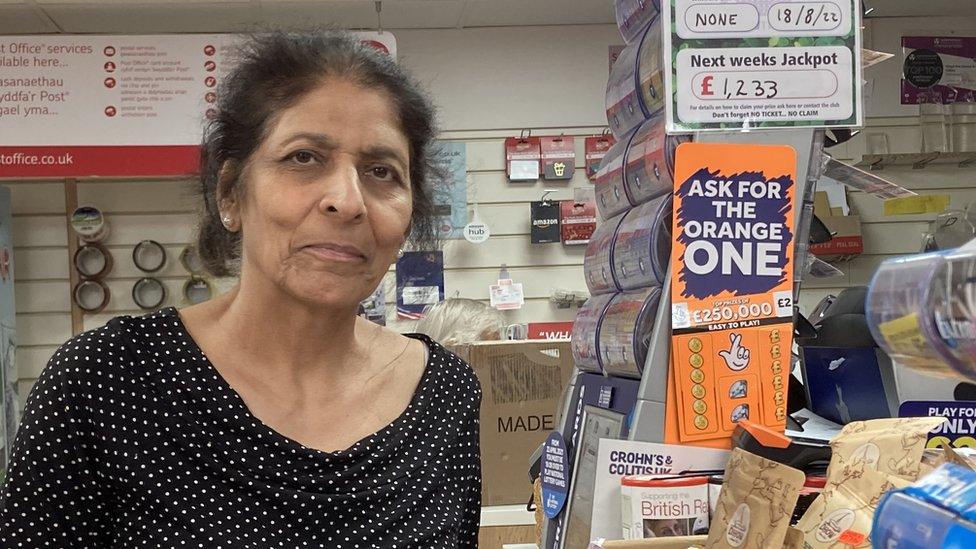
Gita Samani has run a corner shop in Monmouthshire for 35 years
Meanwhile, Mr Samani and wife Gita have run a Spar on Kings Fee in Wonastow, Monmouthshire, since 1987 and have survived several recessions but described recent cost rises as "unbelievable".
"It's going to get even harder by next year because the recession is going to affect local people, especially working-class people," said Mr Samani, a father-of-three.
With inflation now topping 10%, Mr Samani said he had no option but to raise prices.
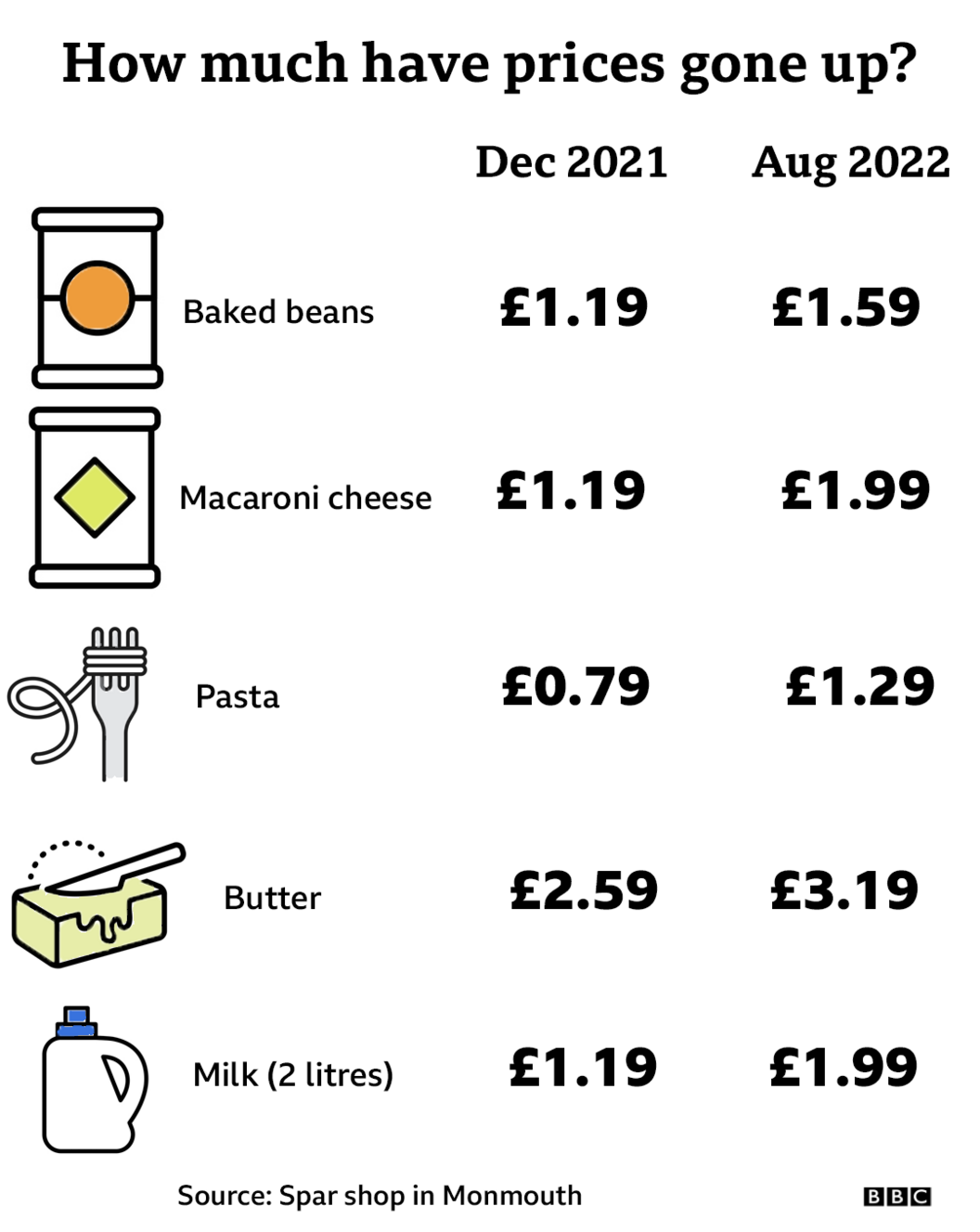
"I have to or I won't survive. I've got overheads, bills and rates to pay, it's so much now that we can't afford not to do that," he said.
Mr Samani employs six people but he admits small businesses, such as his struggle against larger supermarkets.
The shop's electricity bill has risen from £479 a month to £750 a month in the space of a year while National Insurance for his staff and business rates have risen.
After 35 years Mr Samani said he knew his customers personally, many of whom were living day-to-day.
"They always talk about [costs going up], especially now with the electricity prices, the gas prices, petrol prices."
'How are they going to live?'
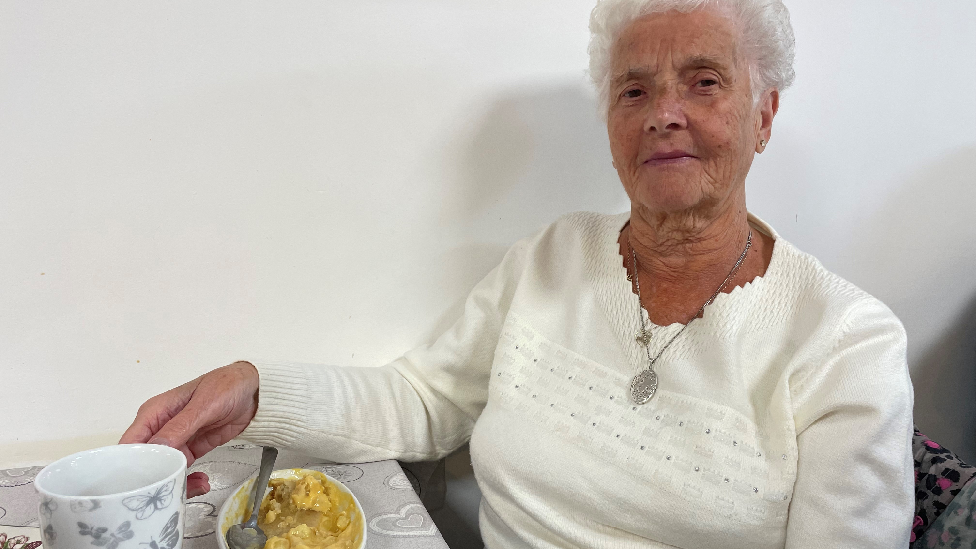
Eileen, 84, from Merthyr Vale, says she fears for young families
Meanwhile people in Treharris, near Merthyr Tydfil, are also feeling the pinch.
Eileen, 84, from Merthyr Vale, said she was concerned at how young families could cope.
"I'm worried about the grandchildren and great grandchildren coming into this world with the price of everything. How are they going to live?"
Her friend Ann Tweedy, 75, said living on a pension and disability allowance was a struggle.
'We'll all try and help each other'
"The food in the shops is going up a lot. Our electric and gas, that's what I'm going to be very worried about… it's risen so much that we'll have to be very careful with our money," she said.
"I'm trying not to spend too much on other things.
"At the moment we've very lucky we can afford to do different things, but in the future we don't know how often we can come out with the prices going up."
She added: "It's going to be very hard for the youngsters, and one thing we don't want them to do is go to these loan sharks.
"We'll all try and help each other. That's the biggest thing, being a family and helping each other. "

TRANSFER: THE EMILIANO SALA STORY: Why was Emiliano Sala on that plane?
SAM SMITH PRESENTS STORIES OF HIV: From Terrence Higgins to today

- Published17 August 2022
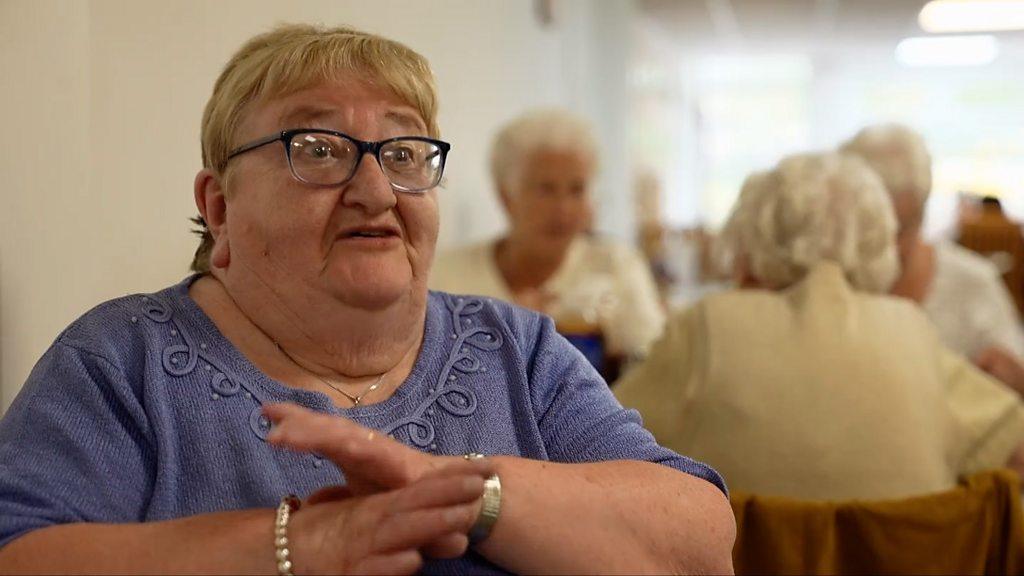
- Published15 August 2022
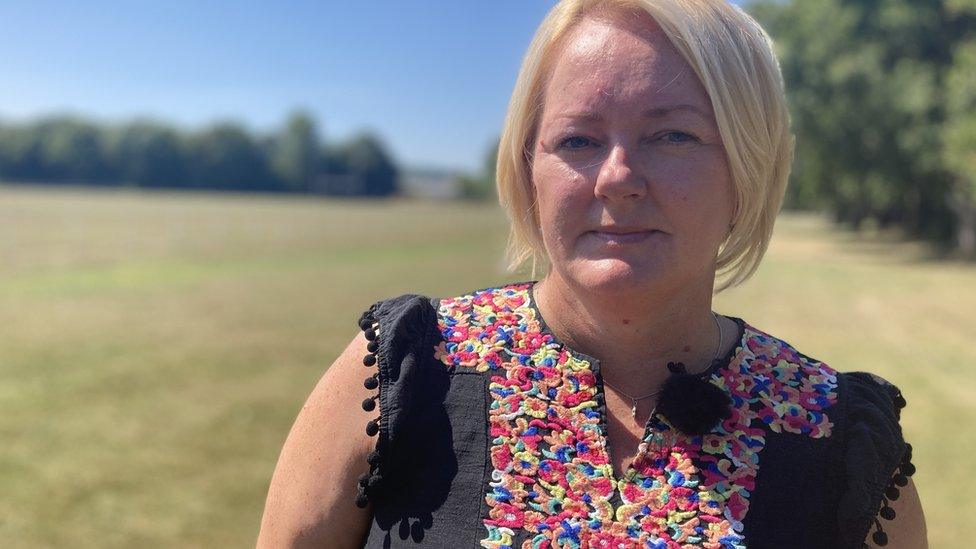
- Published16 August 2022

- Published12 August 2022

- Published17 July 2024
